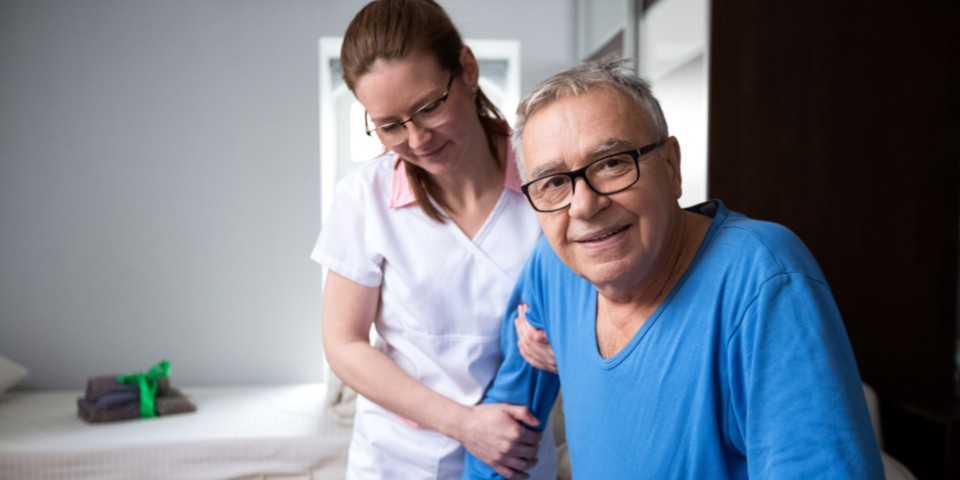Caring for an aging loved one can be hard regardless of their physical or mental condition; but for seniors who have had a stroke, caregivers often take on considerable responsibility. Depending on the severity, stroke patients may face challenges with mobility, such as walking or using their arms, talking, memory challenges, as well as financial difficulties. In many cases, physical therapists and speech therapists can provide immense support, but much of the care falls on family members.
At Collier Home Care, we understand how challenging these types of situations can be, and that’s why we’re here to step in and provide the compassionate care and quality medical support your loved ones need. We have a team of skilled registered nurses, home health aides, and live-in care providers who can ensure that your loved one’s medical needs are covered, and that they can live happily and safely at home. If you’re the caregiver for a stroke patient, read on to get some tips for providing quality care, and contact our home health agency for a consultation.
Get Familiar With Rehabilitation Exercises
You and your loved one will most likely work with a team of therapists who will create a rehabilitation strategy specifically for your loved one’s needs. The strategy will include a variety of exercises to help regain the function, strength, and range of motion in limbs. Exercises are often done in conjunction with medical devices, such as splints, braces, and other orthopedic aids. Outside of therapy sessions, caregivers can continue with certain exercises to help ensure a faster healing process.
Rethink How You Communicate
A large portion of stroke patients experience the side effect aphasia, which is the inability to speak or understand speech. This is caused when the stroke impacts the left side of the brain, which deals with language. When communicating with someone who has aphasia, try to avoid long or complex sentences, and try to remain calm. You may want to use tools to help you communicate, such as pictures, short phrases, or a book of words. A speech-language pathologist can also provide insight into how you can improve communication and aid in their recovery.
Understand Post-Stroke Fatigue
Stroke survivors often experience significant fatigue, which can impact them physically as well as emotionally. Speak with your doctor about fatigue to ensure that there isn’t another cause, such as a new medication. They can also suggest strategies for treating and working around it, such as taking a nap in the afternoon.
Avoid Learned Non-Use
Limbs are often weakened after a stroke, and unless a point is made to exercise and keep active, limbs could begin to atrophy. This situation can worsen when a stronger limb is used to make up for a weakened limb. Working closely with a physical therapist can ensure that the patient is getting the right exercises to avoid this from occurring.
Work With Collier Home Care In Naples, Florida
There are a variety of ways that caregivers can provide support for stroke survivors. If you, as the caregiver, need support, contact the home health care at Collier Home Care. We can ensure that your loved one is getting what they need, while also giving you some relief from your duties. Want to learn more about caring for a stroke patient? Check back for our next blog that will include more tips and information.


